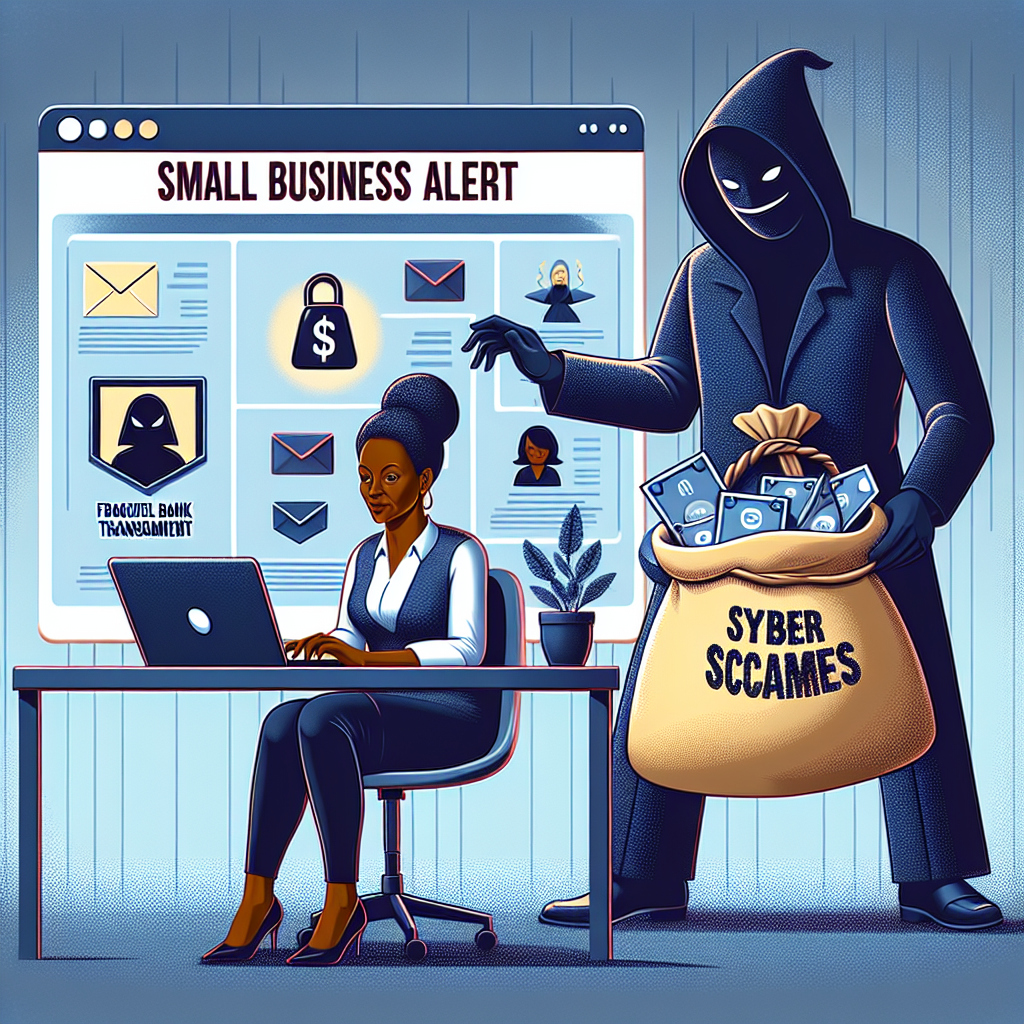
Small Business Alert: How Cyber Scams Target Entrepreneurs
Running a small business in today’s digital world comes with its own set of challenges. One of the most daunting is the threat of cyber scams. Cybercriminals are constantly evolving, targeting small businesses with sophisticated scams. In this article, we’ll dive into how these scams work and teach you how to protect your small business.
Contents
Why Are Small Businesses Targeted?
Small businesses are prime targets for cybercriminals because they often lack robust cybersecurity measures. Unlike large corporations, small enterprises may not have the resources for comprehensive security systems. Hackers find this vulnerability appealing.
Common Cyber Scams
There are several scams that target small businesses. Knowing about these can be your first defense.
-
Phishing Attacks
- Fake emails that appear legitimate.
- Often request sensitive information.
-
Ransomware
- Malware that encrypts data, demanding ransom.
- Can paralyze a business’s operations.
-
Business Email Compromise (BEC)
- Fraudsters spoof email addresses.
- Trick employees into transferring money.
-
Fake Invoices
- Scammers send invoices for services not rendered.
- Small amounts often go unnoticed but add up.
-
Spear Phishing
- Targets individuals within a business.
- Uses personal information to appear credible.
How to Protect Your Business
Preventing these scams requires vigilance and education. Here’s how you can protect yourself:
-
Educate Employees
- Conduct regular cybersecurity training.
- Teach them to recognize suspicious activity.
-
Use Strong Passwords
- Implement multi-factor authentication.
- Ensure passwords are complex and changed regularly.
-
Backup Data Regularly
- Store backups offsite or in the cloud.
- Regularly test backups for integrity.
-
Invest in Security Software
- Use reputable antivirus and anti-malware tools.
- Keep all systems updated regularly.
-
Establish Security Policies
- Create clear cyber policies for employees.
- Regularly review and update these policies.
Detailed Table: Cyber Scams Targeting Entrepreneurs
| Scam Type | Method | How to Protect |
|---|---|---|
| Phishing Attacks | Deceptive Emails | Employee Training, Email Filtering |
| Ransomware | Data Encryption and Ransom | Regular Backups, Security Software |
| Business Email Compromise | Spoofed Business Emails | Verification Procedures, Secure Email Process |
| Fake Invoices | Fraudulent Invoicing | Invoice Verification, Employee Awareness |
| Spear Phishing | Targeted Personal Attacks | Education on Social Engineering, Vigilant Monitoring |
How Are Scammers Becoming More Sophisticated?
What technologies do scammers use to deceive businesses?
Scammers use advanced technologies that mimic legitimate sources. Machine learning helps them craft personalized messages. Moreover, they exploit vulnerabilities in less-secure networks. Cybercriminals can infiltrate systems using spyware, making detection difficult.
How can small businesses stay ahead of cyber threats?
Staying ahead of threats requires continuous adaptation. Small businesses must regularly update security measures. Attending cybersecurity workshops can offer insights into emerging threats. Collaborate with cybersecurity professionals to conduct audits and assessments.
What role does employee training play in cybersecurity?
Employee training is vital in fighting cyber scams. Well-trained employees can identify phishing emails or suspicious activity. Regular workshops ensure that employees are updated on the latest threats. Empower employees with knowledge, and they become your first line of defense.
The Economic Impact of Cyber Scams
Cyber scams have severe financial consequences. Small businesses might face significant losses, both monetarily and in terms of data. The cost of recovering from an attack, including potential ransom payments, can be devastating. Downtime also leads to revenue loss, not to mention the risk of damaged reputation.
Lessons from Real-World Incidents
Real-world cases highlight the importance of vigilance. A small New York startup recently fell victim to a ransomware attack. Despite having insurance, their operations were paralyzed for days. The incident underscores the critical need for proactive safety measures.
Key Takeaways
Be prepared and educate your team. With cyber scams on the rise, protection is more crucial than ever. Regularly review and update your security measures. Always remain cautious and question unexpected requests.
For further reading, explore the latest articles about Small Business Cybersecurity.
Your small business isn’t immune, but with diligence, you can safeguard it.
Stay informed, stay alert, and never underestimate the cunning of cybercriminals.






